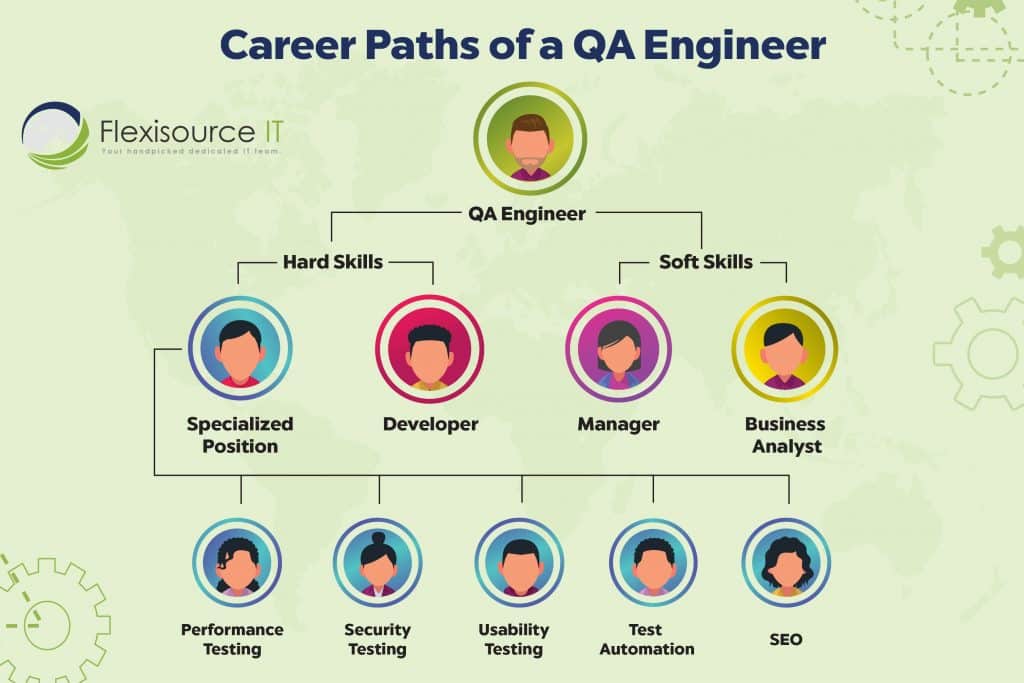Not every IT, computer science, or software engineering student will consider quality assurance (QA) roles after they graduate.
Most of them are drawn to pursuing software development roles and are involved in the software development process. University IT-related programs don’t really focus and barely pay attention to software testing and how it can be a potential career. Even those who intentionally started in the QA field aren’t given much attention for its long-term path.
Fortunately, with the rapid shift in the software development industry, QA roles have been getting the focus they deserve. More companies adopt DevOps approaches, implement Agile methodologies, and the like. QA experts are now more involved in the software life cycle than ever.
QA professionals today have more opportunities to pursue a more lucrative path, from managing the QA testing process, being the customer experience experts, being product managers, to even exploring enterprise architecture.
Career Paths of software Quality Assurance Engineers

With the rapid shift in the software development industry, various career paths of software QA engineers can be explored to level up their careers.
To know what career path is best for you, it would be best to evaluate the skills that you have. Based on your skills, you can weigh in what career is the most viable path for you.
Hard Skills
These are the technical, specific, teachable abilities you may have learned while studying. In addition, these are the things you learned during your projects. Most hard skills are connected to your professional activities. In QA, for example, the hard skills involve identifying, submitting, and validating defects. It also involves creating test plans and documentation, reporting, among others.
Soft Skills
On the other hand, soft skills are the traits you have that enable you to effectively work and communicate with your teammates and colleagues. Having great soft skills also helps you advance your career, especially when you want to be a successful team player.
Career 1: Specialised Roles
The usual pattern follows the standard promotional process in quality assurance roles. You will start out as a junior QA engineer/tester (entry-level). Then move as a senior QA engineer/tester and finally become a lead testing specialist.
Within your activities, you can also continue to specialise in specific aspects of the QA testing process. Many QA engineers pursue specialisation in testing. You may continue the path of performance testing, usability testing, security testing, test automation, among others.
Career 2: Developer Roles
With the background of software development, there are also many QA testers exploring the development side of projects. Even when you don’t necessarily have the relevant education and qualification, they can learn the basics of programming while you’re at it. Since you’re already familiar with the process, it’ll be easier to adopt as long as you pursue learning programming as well.
Career 3: Project Manager
When you develop your soft skills and you have a great skill in communication and coordination to your team and customers, you may explore project management and try to be a project manager. This role needs a team player and proactive leader who takes action and decides for the project and other managerial tasks. Managerial roles, depending on the company process, include project manager, resource manager, test lead, and etc.
Career 4: Business Analyst
Considered to be middlemen between IT teams and customers are the business analysts. This career path is for those experienced testers who would want to shift into business analysis. A good business analyst knows and understands operating principles.
If you’re looking for competent QA engineers to help build businesses, go for Flexisource IT.
Flexisource IT builds top-calibre dedicated, fully-managed customer service teams committed to support Australian clients with their technical and customer service needs. Our flexible outsourcing or flexisourcing hybrid model enables clients to find the best IT professionals in the Philippines with reduced costs.









